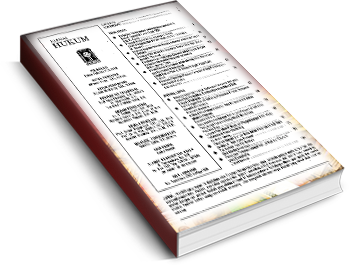Main Article Content
Abstract
The recent case of Edy Tansil and Hendra Rahardja is one of small exarnples of how the development of white colour crime has become trans-national. Thus, Indonesia should be actively involving itself among other countries to provide a settlement of the criminals. Several other countries have an extradition agreement with Indonesia, while others do not. The extradition itself boasts a different view from one country using common law
systems to one employing civil law systems whether or not the extradition would be allowed, ifthe treaty were not yet proved. This article endeavours the forms ofwhite colour criminals, and what contribution ofthe extradition agreement in precluding the criminals among countries.
systems to one employing civil law systems whether or not the extradition would be allowed, ifthe treaty were not yet proved. This article endeavours the forms ofwhite colour criminals, and what contribution ofthe extradition agreement in precluding the criminals among countries.
Keywords
extradition agreement
criminals
countries
Indonesia
Article Details
License
Authors who publish with this journal agree to the following terms:
a. Authors retain copyright and grant the journal right of first publication with the work simultaneously licensed under a Creative Commons Attribution License that allows others to share the work with an acknowledgement of the work's authorship and initial publication in this journal.
b. Authors are able to enter into separate, additional contractual arrangements for the non-exclusive distribution of the journal's published version of the work (e.g., post it to an institutional repository or publish it in a book), with an acknowledgement of its initial publication in this journal.
How to Cite
Tsani, M. B. (2016). Pemberantasan Kejahatan Ekonomi antar Negara dengan Perjanjian Ekstradisi (Perspektif Indonesia). Jurnal Hukum IUS QUIA IUSTUM, 7(15), 48–64. https://doi.org/10.20885/iustum.vol7.iss15.art5




